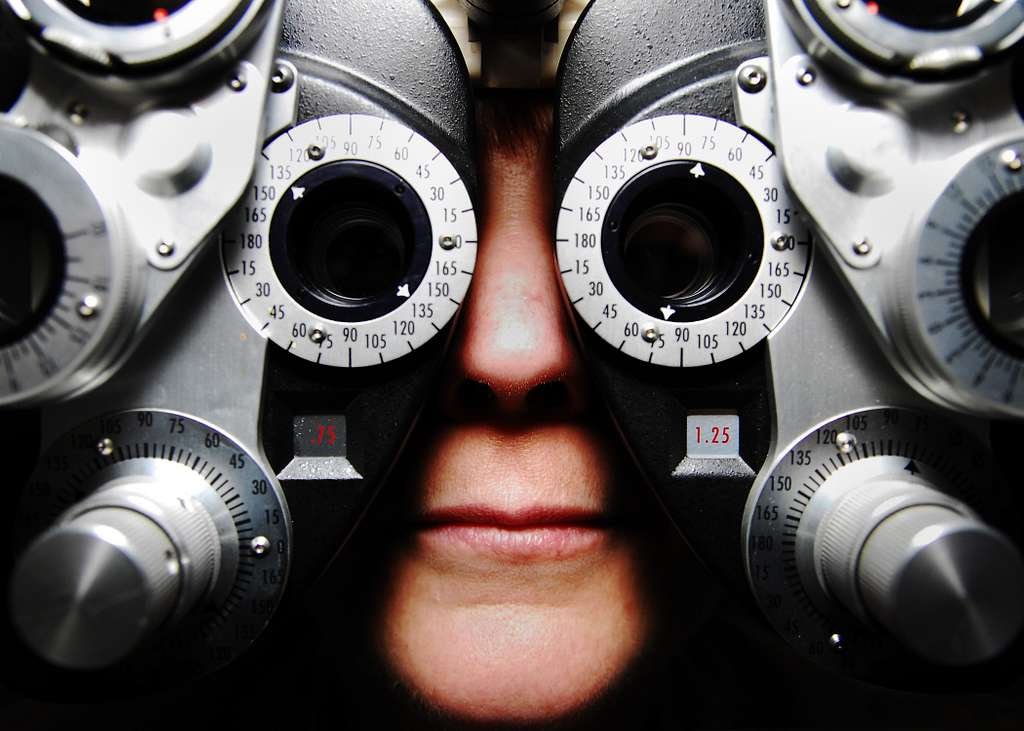How Often Should You Get an Eye Exam?
Shanbom Eye Specialist in Detroit, MI
Depending on whether you have conditions related to the eyes and vision, you may not need an eye exam every year, but there are still important reasons to have your eyes checked even if there are no signs of eye conditions.
Goals of an Eye Exam
Determine if you need glasses, contacts, or other vision support
Without testing, vision problems easily go unnoticed. Someone may strain to read signs from far away, or their eyes may get tired from working on things up close, but without knowing what they’re missing, this may seem perfectly normal. Untreated, impaired vision results in eye strain and headaches, and can lead to eye damage in addition to difficulties concentrating, driving, and performing other daily tasks like participating at work and school. In addition, vision changes over time, changing over the course of months for children and young adults, and over the course of years as we grow older. Regular eye exams can bring relief where vision impairments may have gone unnoticed.Update your vision prescription
Even after being prescribed glasses or contact lenses with a precise prescription, people’s vision continues to change over time. Keeping up with a prescription means having optimal vision, staying informed on vision changes, and avoiding eye strain which can otherwise lead to worsening symptoms.
Discover and identify potentially serious eye conditions
Certain conditions have only minor symptoms, or no symptoms at all, until they become worse. One serious example is glaucoma, which can occur in anyone and often goes unnoticed, eventually leading to vision impairment and blindness. The best way to avoid glaucoma is to have regular and comprehensive eye exams in order to catch it in its early stages. Changes in vision can also be a sign of other ailments, and diagnosing these can bring patients closer to treatment for the underlying disease. In short, having regular eye exams can be life-changing.
Reasons to have annual eye exams
If you are between 13 and 20 years old
The teen years are a time of rapid and significant changes, and the eyes are no exception. With growing responsibilities, teens may also be spending more time using their near vision to study and read, causing eye strain and sleep deprivation which can worsen symptoms. To ensure a teen’s vision health is at its best, annual exams are highly recommended.If you are over 50 years young
As we grow older, our eyes become more susceptible to conditions like cataracts, macular degeneration, and glaucoma. Having your eyes checked regularly becomes important for spotting issues early. Our near vision also becomes more blurry as it becomes more difficult for the eyes to focus.If you have diabetes or an autoimmune disease
Unfortunately, there are certain diseases that affect eye health, and watching for signs of eye disease becomes important alongside maintaining treatment. Annual eye exams are highly recommended, and your doctor may recommend more frequent visits.If you are at risk of eye disease
In addition to other factors, eye conditions often run in families, and family history of a disease can present increased risk. Other conditions like chronic dry eye may put you at risk of other conditions, meaning frequent eye exams are wise.If your doctor recommends annual eye exams
There may be other reasons your doctor recommends having your eyes checked each year.
Reasons you may need more frequent eye exams
If your child has glasses
It is often recommended for children under the age of 20 who have impaired vision to receive eye exams every six months in order to keep their glasses or eye contact prescription accurate. If your child often takes off their glasses or mentions difficulty seeing things, this may be a sign their prescription no longer supports their vision fully.
If you are monitoring an eye condition
Your doctor may recommend repeat eye exams in order to see how a treatment is working, or to track the changes in an eye condition.If you cannot see well with your glasses or contacts
If you experience your vision becoming more blurry over time, a new eye exam is in order. The change in vision may be a sign of your eyes changing over time, or it could be a sign of an undiagnosed condition.If your doctor recommends frequent eye exams
There may be other reasons your doctor recommends having your eyes checked frequently.
How often to get eye exams with no eye conditions or concerns
If you are between 19 and 50, have no vision impairments or eye conditions, have no family history of eye disease, do not have any symptoms of eye conditions, and have no other concerns or reasons your doctor has given to receive annual eye exams, this is excellent news! Check-ups every two to three years can help to identify diseases that do not present noticeable symptoms. You may also choose to have your eyes checked more often for peace of mind, or to ensure you catch any conditions in their early stages.
If you had a recent exam but have symptoms or concerns, should you get another eye exam?
Regardless of how recently you had your most recent eye exam, it is always a good idea to call your optometrist or ophthalmologist about any symptoms you are experiencing. An eye exam can help identify any vision impairments or conditions and start you on the path of treatment.
If there is an emergency, please call 911 right away.
Regular eye exams are important for maintaining and protecting your vision. The frequency of exams needed varies from person to person, so knowing your individual needs is important for proper eye care. If you’re in the Detroit, Michigan area, schedule an eye exam with Shanbom Eye Specialist for a comprehensive eye exam.


